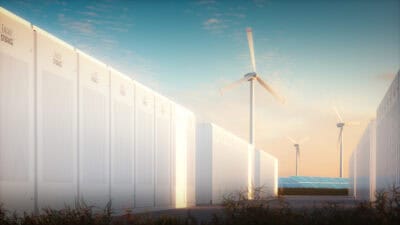One of the best ways for Motley Fool investors to find stocks is by looking to the future. In this case, a U.S. infrastructure bill was ripe with opportunity this week as it passed through Congress. The Senate passed the Infrastructure Investment and Jobs Act, adding a US$1.2 trillion infrastructure bill. The bill will be a major focus on President Joe Biden’s climate change legislation. And thus some of the best Canadian stocks will be able to take advantage.
How’s that?
The infrastructure bill will help companies that are looking to expand their clean energy options. This US$1.2 trillion will aid that growth on top of the already proposed US$2 trillion by the Biden administration toward climate change. But there’s more.
This recent news is also on top of the potential US$10 trillion in global investment to combat climate change by 2030. And the even better news? The cost of these climate change infrastructure projects is decreasing. The cost of wind power declined by 70% in the last decade and solar power by a whopping 89% in that time! That means companies can borrow and finance projects at an astounding rate. So looking into the best Canadian stocks in these areas are definitely some great options for Motley Fool investors.
But don’t stop there
Yes, wind and solar are cheaper than they once were. But there are other ways to invest in clean energy that you won’t want to miss out on. Clean energy infrastructure will soar in the next decade and beyond. But it’s unclear where the winner will lie at the end of it. Just as oil and gas was the winner over a hundred years ago, it’s likely only one or two areas of clean energy will come out on top.
Rather than put all your eggs in one green-and-clean basket, try to spread out your risk. This would mean finding exchange-traded funds (ETFs) focusing on clean energy, for example. But you could also find companies that are also investing in these areas. If you’re able to find diverse portfolios, then you may instead see your returns come in higher than you would with a simple ETF.
Two options to consider today
In that case, two of the best Canadian stocks I would consider would be Brookfield Renewable Partners (TSX:BEP.UN)(NYSE:BEP) and Cameco (TSX:CCO)(NYSE:CCJ). With Brookfield, you get access to a vast portfolio of renewable power that is only growing larger. It’s spread across the world, from North and South America to Europe, India, and China. It generates by using hydroelectric, wind, solar, pumped storage, cogeneration, biomass, and distributed generation sources. This combines for a total of 19,000 megawatts of capacity. That’s incredible by any standards.
Brookfield recently secured a 25-year contract to support 1.5 gigawatts of offshore wind and one of the largest onshore wind projects in the world. This came during one of its strongest earnings reports to date. The company reported a 28% year-over-year increase in generated funds from operations, and 28 renewable generation agreements. The company invested $1.9 billion in further projects, while still having $3.3 billion on hand. So this is one of the best Canadian stocks you can buy for a diverse range of clean energy power.
But then there’s Cameco. Nuclear energy is lacking from Brookfield’s portfolio, and Cameco is there to pick it up. The infrastructure bill will likely see the renewal of nuclear power generation. Cameco is one of the largest producers and sellers of uranium in the world, and with so many countries using nuclear power in the next decade, Cameco will be a major benefactor. And that’s not only in the United States. Indeed, China is looking to move from coal, and Russia is creating several reactors as well.
Bottom line
Clean energy is the future, and the money is there to support it. If Motley Fool investors want to find the best Canadian stocks, look to the future. Brookfield rose 25% in the last year, with an average potential upside of 8% for the remainder of the year. Cameco climbed 48%, with a 16% future outlook.
These companies are only in the beginning stages, so holding onto these stocks in the next decade could mean serious wealth.






